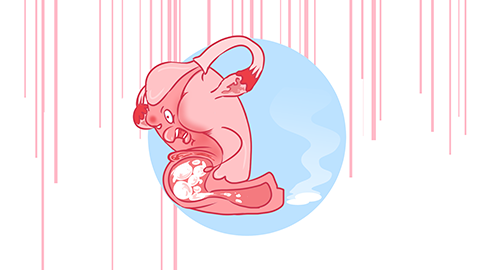What are the causes of hymenal rupture?
The hymen, also known as the vaginal veil, may rupture due to vigorous exercise, accidental impact, vaginal foreign body injury, vulvar inflammation, bacterial vaginosis, or other causes. If abnormalities occur, timely medical attention is recommended. Detailed explanations are as follows:

1. Vigorous exercise: Engaging in high-intensity activities such as running, jumping rope, or gymnastics may cause excessive pulling on the vaginal veil due to intense bodily movements or abdominal pressure, leading to rupture. No special treatment is required; rest appropriately, avoid further strenuous activity, and maintain cleanliness of the external genitalia.
2. Accidental impact: Accidental falls or impacts to the vulvar area during daily activities may directly affect the vaginal veil, causing tearing or rupture. Immediately stop all activity to avoid further stress on the vulva. If there is no significant bleeding or pain, the injury may heal on its own with rest.
3. Vaginal foreign body injury: Accidentally inserting a foreign object into the vagina may cause scraping or rupture of the vaginal veil during removal or movement of the object, often accompanied by vaginal pain and slight bleeding. Patients should cooperate with a doctor to remove the foreign object, then use povidone-iodine solution to clean the affected area, and take cephalexin capsules and tinidazole tablets as prescribed to prevent infection.
4. Vulvar inflammation: Bacterial or fungal infections can cause vulvar inflammation. Long-term inflammatory irritation may lead to congestion and fragility of the tissue around the vaginal veil, making it prone to rupture even with minor external force. Symptoms often include itching, redness and swelling of the vulva, increased discharge with an unpleasant odor. Treatment should be guided by a physician using potassium permanganate solution, metronidazole gel, and clotrimazole cream to inhibit pathogens infection and reduce inflammation.
5. Bacterial vaginosis: Imbalance of vaginal flora, with excessive growth of pathogenic bacteria such as Gardnerella vaginalis, may cause infection. Inflammatory irritation affects the vaginal mucosa and vaginal veil tissue, reducing elasticity and increasing fragility, making rupture more likely. Symptoms often include increased vaginal discharge with a fishy odor. Typically, physicians may prescribe metronidazole suppositories, clindamycin phosphate vaginal gel, and traditional Chinese medicine such as Fuke Qianjin tablets to regulate vaginal flora and eliminate inflammation.
In daily life, it is important to protect the vulvar area and maintain cleanliness and dryness. If vaginal veil rupture is accompanied by persistent bleeding or pain, seek medical attention promptly. Vaginal veil repair surgery may be necessary in some cases.




